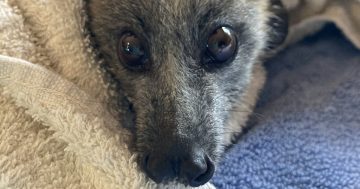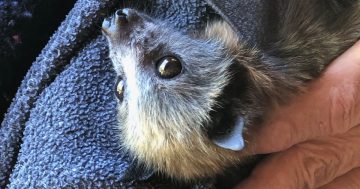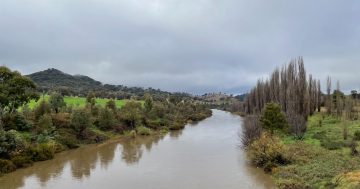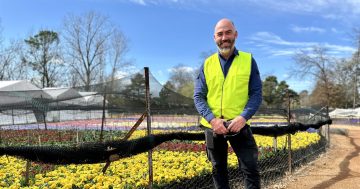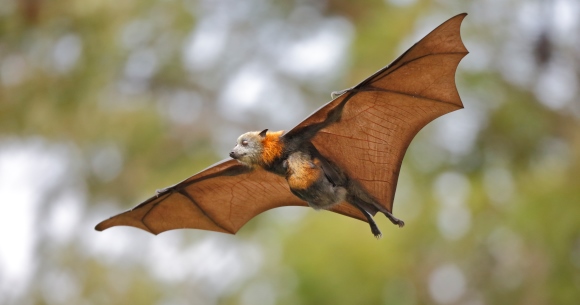
The NCA will take a ‘watch and wait’ approach to monitoring flying fox heat stress in Commonwealth Park. File photo.
Flying fox roosts in Commonwealth Park will be monitored during the continuing heatwave conditions, but the NCA, which is responsible for the Park, will not take specific action to remediate the extreme heat stress being experienced by the colony.
Region Media reported this week that ACT Wildlife’s trained volunteers had resorted to monitoring the native animals, ready to spray them with water if they fell out of their trees. The coast-dwellers are on their annual migration to Canberra in search of fruit but are struggling to cope with low humidity and high temperatures.
The NCA met with ACT Wildlife yesterday in Commonwealth Park to discuss the flying fox colony and a spokesman said both parties agreed that “the best thing to do is to leave the colony alone and not intervene while they are in the trees as this may affect their natural response mechanisms to heat stress. In order to minimise disturbance, we further agreed that we would not spray the colony or the ground with water”.
ACT chief ecologist Murray Evans said that the mortality point for flying foxes begins around 43 degrees although extreme heat stress can happen before that point, especially among pregnant and lactating females.
“Their main heat control mechanism is wing fanning, moving air across the membrane of their wings. The proportion of flying foxes doing wing fanning will indicate how well the colony is coping with the heat. As the stress increases, they’ll also start licking their wrists and panting.”
Mr Evans said bat experts now recommend minimum disturbance to the colonies because a heat-stressed bat that flies away could well suffer a heat stroke and die. Evidence now also suggests that it’s best not to spray the ground with sprinklers because high humidity on the ground reduces the animals’ ability too cool down.
Flying foxes usually don’t need to drink because their fruit diet contains enough moisture. But the local colony’s location next to Lake Burley Griffin means they can fly out over the water and scoop it up. Mr Evans says that stress monitoring guidelines in NSW and Queensland suggest the colony should only be approached by trained and vaccinated volunteers when foxes are on the ground.
“A gentle spray from a backpack of water might help, but the volunteer should then move away and keep monitoring the situation with minimum disturbance. If the animals are not recovering, they need to be taken into care and rehydrated,” Mr Evans said.
The NCA has conceded this approach may mean that some animals will die, saying “It is unfortunate that despite best efforts that a triage approach may be needed. Those animals ACT Wildlife judge not able to be rehabilitated and returned to the wild will be euthanized as quickly and humanely as possible.”
ACT Wildlife will continue to monitor the colony and advise the NCA about ongoing issues, and signs have now been placed in the area to inform the public about the stresses to the colony. No deaths have been reported as yet in the ACT.
The NCA is in the process of developing a Management Plan for the flying fox colony in the Park. They’ve also expressed gratitude to ACT Wildlife for their dedication and support to the welfare and well-being of the wildlife in the ACT and in particular the flying fox colony in the Park.












